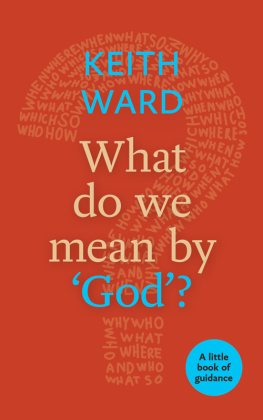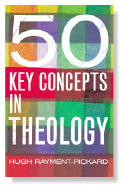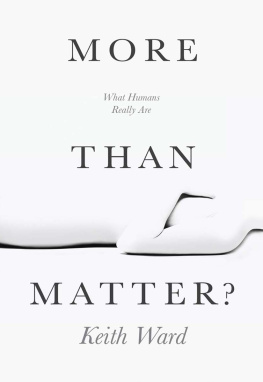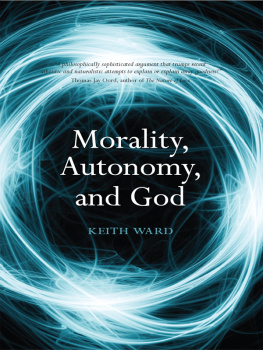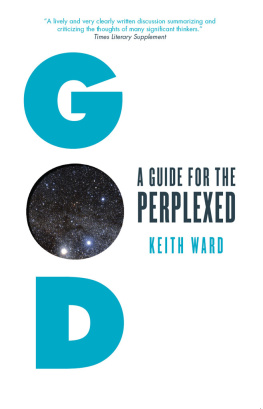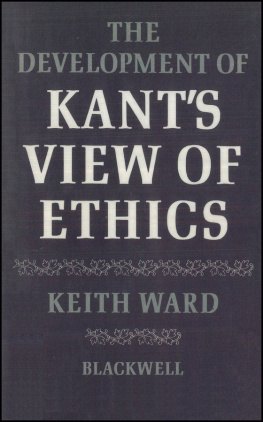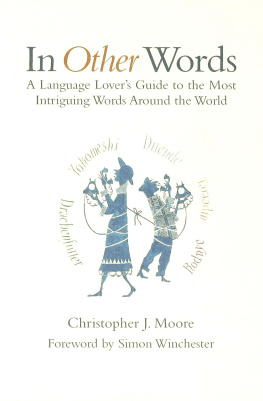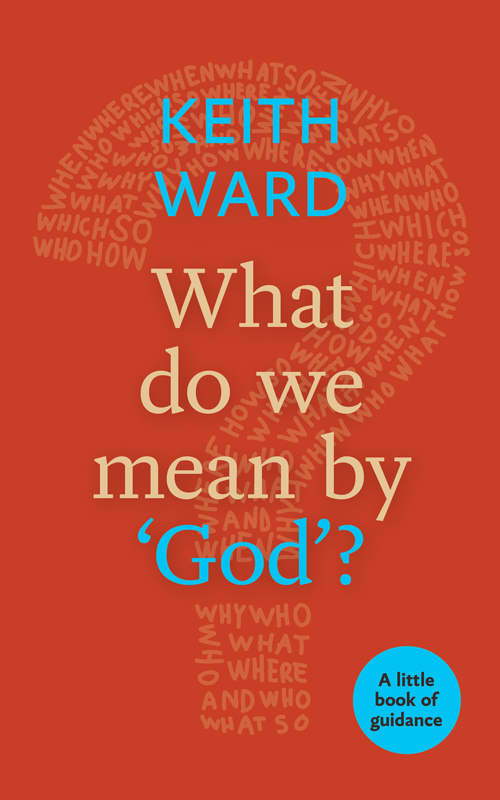Keith Ward is a Fellow of the British Academy, and former Regius Professor of Divinity, University of Oxford. He is currently a Professorial Research Fellow at Heythrop College, University of London. His other books include What the Bible Really Teaches (2004), Christianity: A guide for the perplexed (2007), The Promise (2010) and The Word of God? (2010), all published by SPCK.
Little Books of Guidance
Finding answers to lifes big questions!
Also in the series:
How Do I Pray? by John Pritchard
Where on Earth Is Heaven? by Paula Gooder
Why Read the Bible? by Tom Wright
First published in Great Britain in 2015
Society for Promoting Christian Knowledge
36 Causton Street
London SW1P 4ST
www.spckpublishing.co.uk
Copyright Keith Ward 2015
All rights reserved. No part of this book may be reproduced or transmitted in any form or by any means, electronic or mechanical, including photocopying, recording, or by any information storage and retrieval system, without permission in writing from the publisher.
SPCK does not necessarily endorse the individual views contained in its publications.
The author and publisher have made every effort to ensure that the external website and email addresses included in this book are correct and up to date at the time of going to press. The author and publisher are not responsible for the content, quality or continuing accessibility of the sites.
Scripture quotations are taken from the New Revised Standard Version of the Bible, Anglicized Edition, copyright 1989, 1995 by the Division of Christian Education of the National Council of the Churches of Christ in the USA. Used by permission. All rights reserved.
British Library Cataloguing-in-Publication Data
A catalogue record for this book is available from the British Library
ISBN 9780281073283
eBook ISBN 9780281073290
Typeset and eBook by Graphicraft Limited, Hong Kong
Contents
For many people today believing in God is really quite difficult. There are lots of ideas of God around which people find distasteful or unacceptable. For example, two of the best known paintings in the Western world portray God in ways that, unfortunately, give rise to quite false ideas of who, or what, God is. One is Michelangelos painting of the creation of Adam, on the ceiling of the Sistine Chapel in Rome. In that painting, God is shown as a very well-developed, well-muscled specimen of humanity with long white hair and a flowing beard. He is just like Adam but a little older and with a bigger beard. This sort of representation of God in art was, of course, quite unknown in ancient Jewish tradition, which expressly forbade the making of any images or pictures of God at all. In Islam, too, no pictures are allowed in mosques, which is why such beautiful techniques of writing in decorative Arabic script evolved in that tradition. It might well be held that Michelangelo, for all his genius, broke that ancient prohibition on picturing God, and subsequent Western thought has paid the price.
Another well-known picture of God creating the universe is seen in The Ancient of Days, by William Blake. Again, God is a well-muscled human being with a flowing beard and long white hair. In his hand he holds a pair of compasses, with which he is measuring out the world. When Blake drew this picture, he was in fact portraying the sort of God that he thought was a bad God, an interfering measuring God who squashed and repressed the human imagination. For Blake, this was a sort of anti-God. Unfortunately, most people do not realize that, and they take Blakes picture to be a depiction of God as he really is.
These paintings have had an unfortunate effect, because they are such good paintings and because the power of visual imagery is so strong that we find it hard to get out of our minds the idea of God as a man with a long flowing beard sitting just above the clouds or in the sky. We can get more sophisticated, and say, Well, I know that there is no actual physical form in the sky. We have been up there in space-ships and satellites, and we know there isnt anything there. And I know that he isnt just a little bit further away either, just beyond Alpha Centauri. No, God is not physical at all. He is a purely spiritual being. But even if we try to get sophisticated, we might still think of God as a particular being: a purely mental being, who thinks in much the same way as we do, one thing after another; who decides, in much the same way as we do; who makes up his mind whether to do this or that, and perhaps changes it at a later date; and who feels in much the same way that we do, so that he feels sad when we do something wrong and happy when we do something good (which must mean hes depressed most of the time). In general, he has pretty well human feelings.
So God is seen as very much like an invisible human being, an immortal one; like the old Greek gods, he is human in character but immortal and invisible. This God is still a mind, rather like ours though better; he is out there somewhere; he is apart from us. He is perhaps just beyond the edge of the universe; he is a separate being. So we say that God is transcendent; he transcends everything in the physical universe. But he is, nevertheless, another mind.
But this is just as false a picture of God as is Blakes or Michelangelos. It is quite essential, when we start thinking about God, to put this picture out of our minds completely. Whatever God is, he has never, in the orthodox Christian tradition, been thought to be a finite mind, even if very wise and powerful, somewhere in or just beyond the universe. That is why one of the chief ways the early Christians chose to describe God was to say that God is infinite.
Why must God be infinite?
When we say that God is infinite, we mean that God is not limited by anything else. There is nothing which sets limits to God and so makes God finite. God is not just one thing among other things of the same sort. But that means that we cannot think of God as a being, even as a very large being, who exists in addition to the universe because if God were outside the universe, God would be limited by it and excluded from it. Theologians have sought many different ways of trying to express this point. Some have said that God is not a being, but Being-itself. Some have said that God is the unlimited ocean of being. Others have said that God is self-subsistent Being. The common concern has been to deny that God is another thing, something like the things in the universe, but somehow bigger and better.
The idea that God is infinite is a very hard one to grasp, and perhaps the best most of us can do is to think in terms of some picture which may help us to think of it. As long as we remember that it is no more than a picture, which may be as misleading in its own way as Michelangelos Old Man in the Sky, I would tentatively suggest the following way of thinking about God.
Instead of thinking of God as an invisible mind or person, somehow separate from us, try thinking of God as the one unlimited reality which includes us and the whole universe within itself. We are all finite and limited. But we are all parts of one reality which is unlimited and infinite; and that reality is God. So I suggest that we might try thinking of God as the one unlimited reality of which all finite things you, me, the trees, the stars, the galaxies are parts.
Of course, I am not just saying that the universe is God, that God is nothing else but the physical universe. That would be quite wrong. If I said that, I would only be using the word God to stand for what everybody else calls the universe; and I do not mean that. But the universe can be seen as part of God. In the New Testament it is said that in him we live and move and have our being (Acts 17.28). Here is the idea that we are included in the infinite God.

